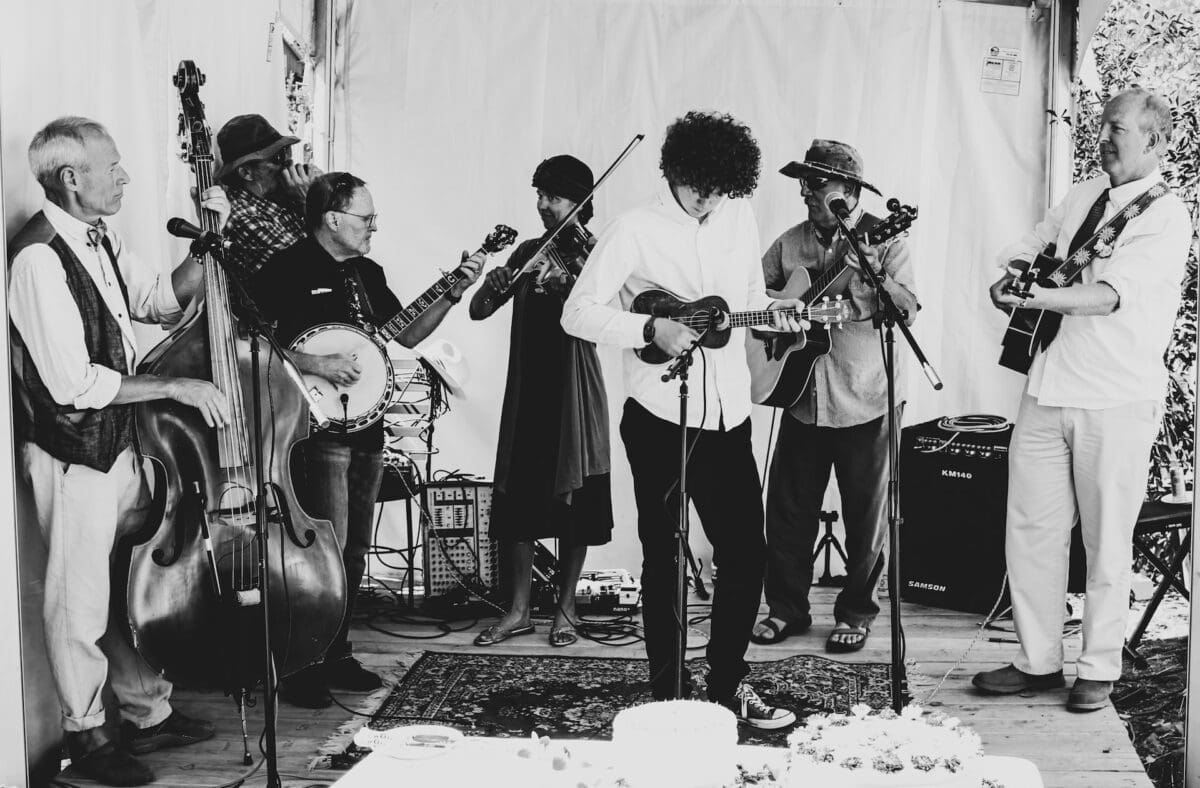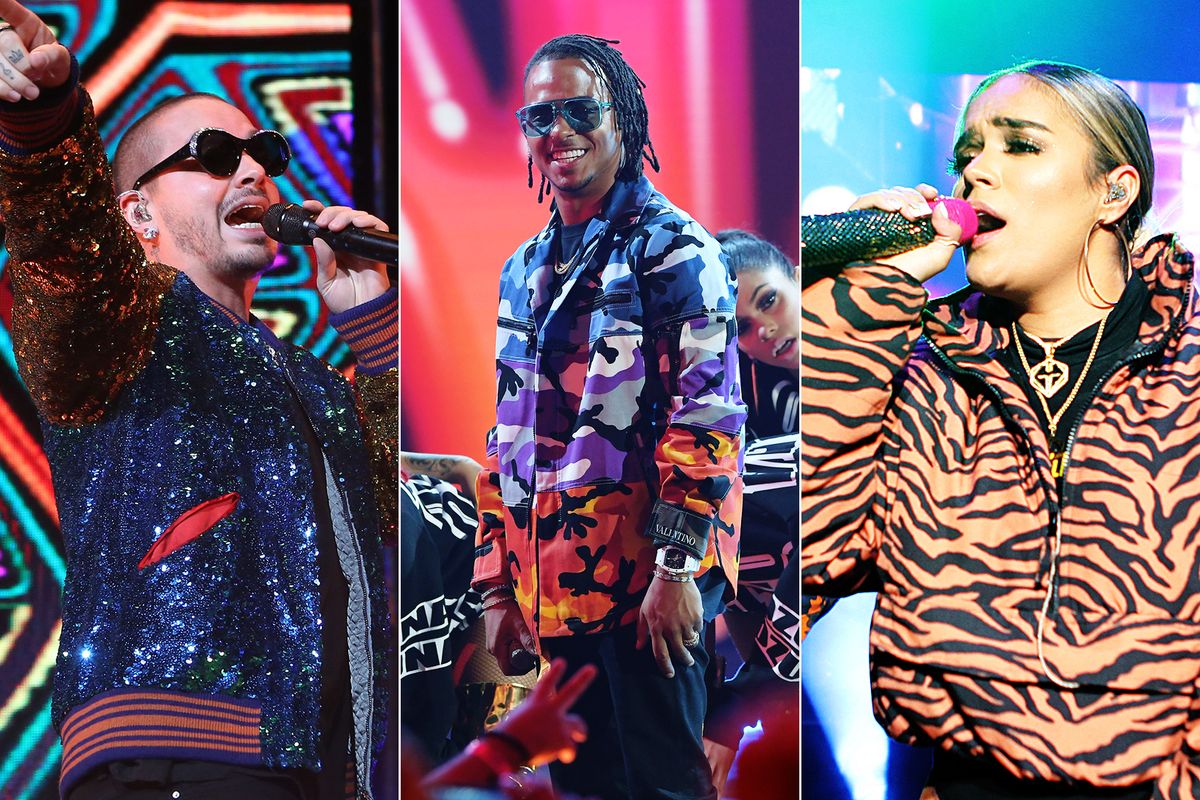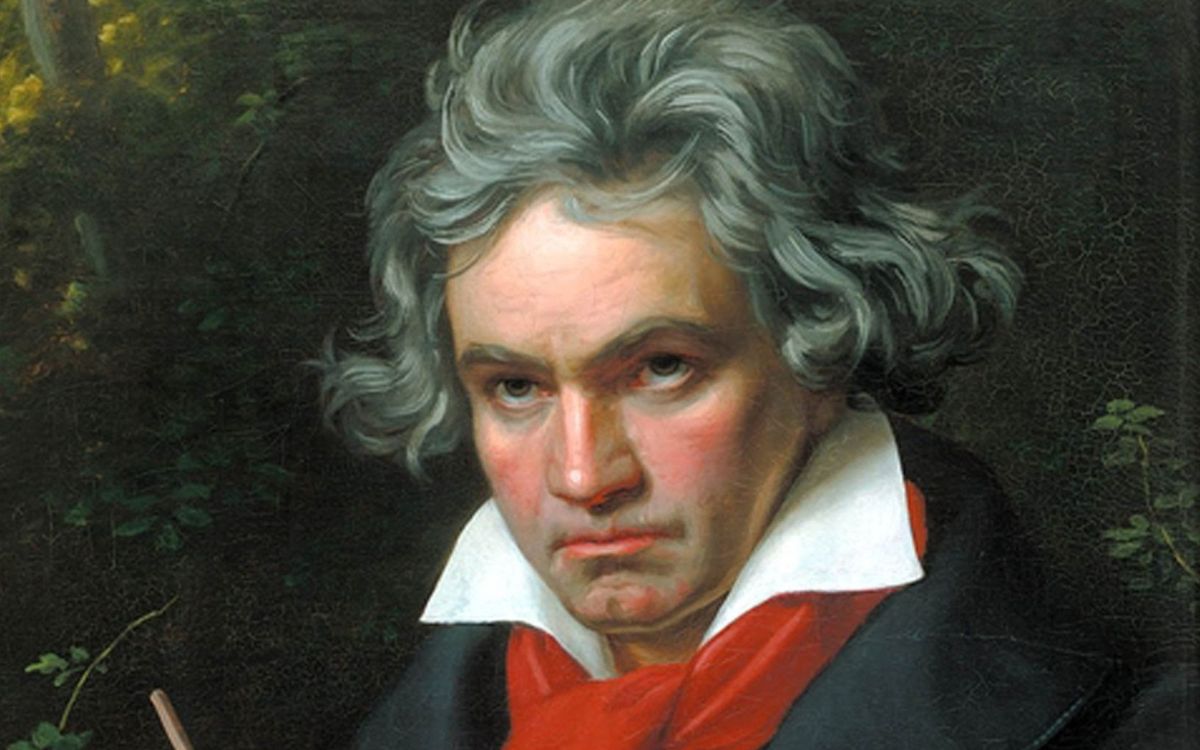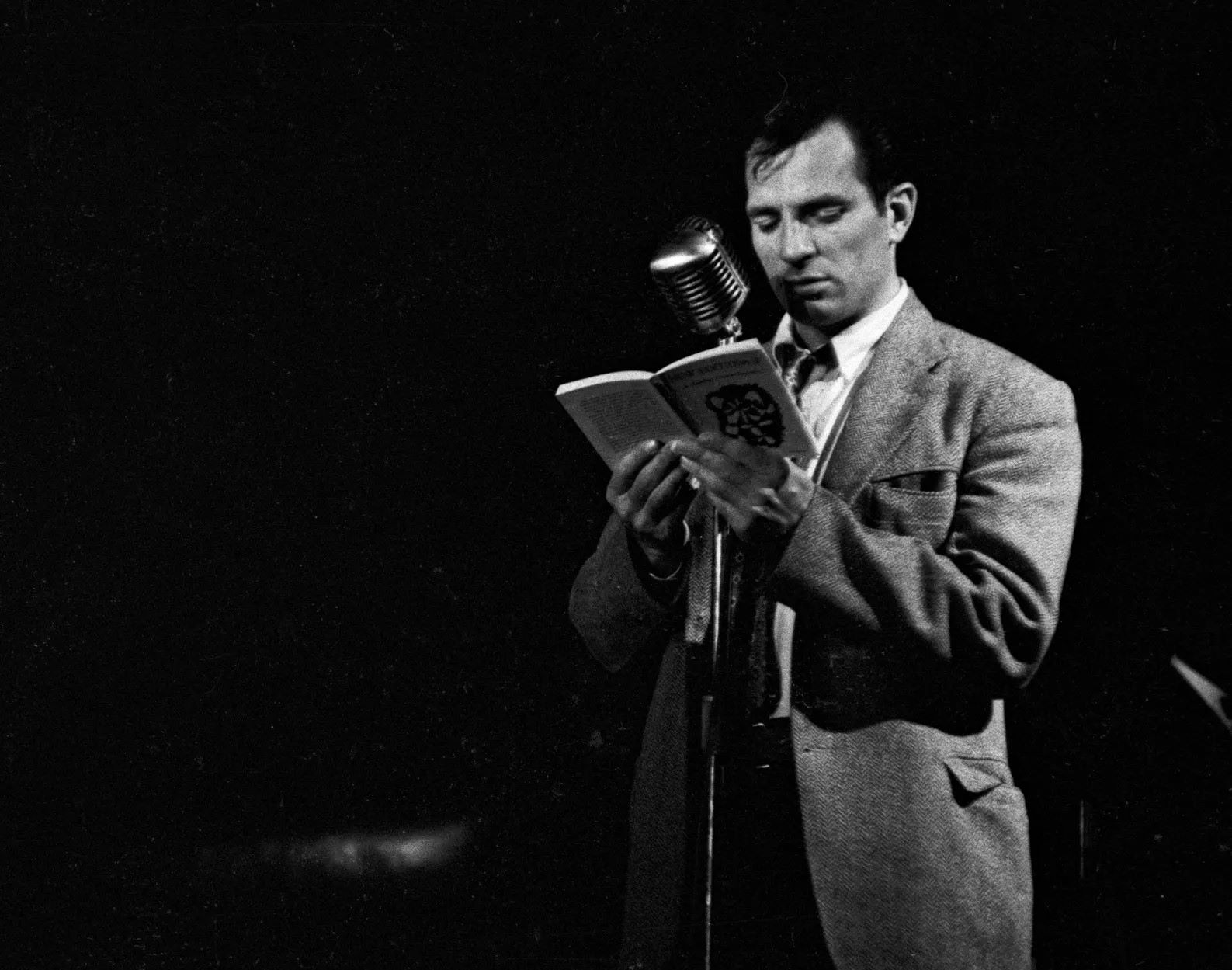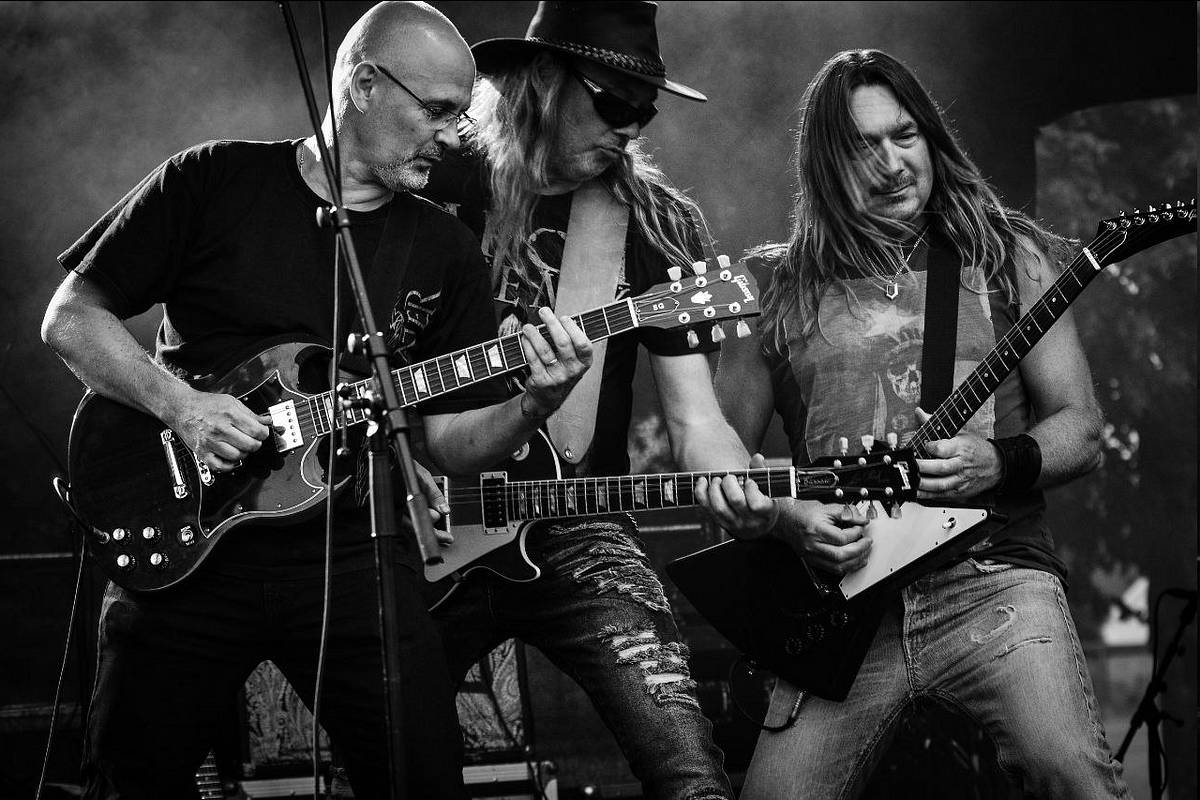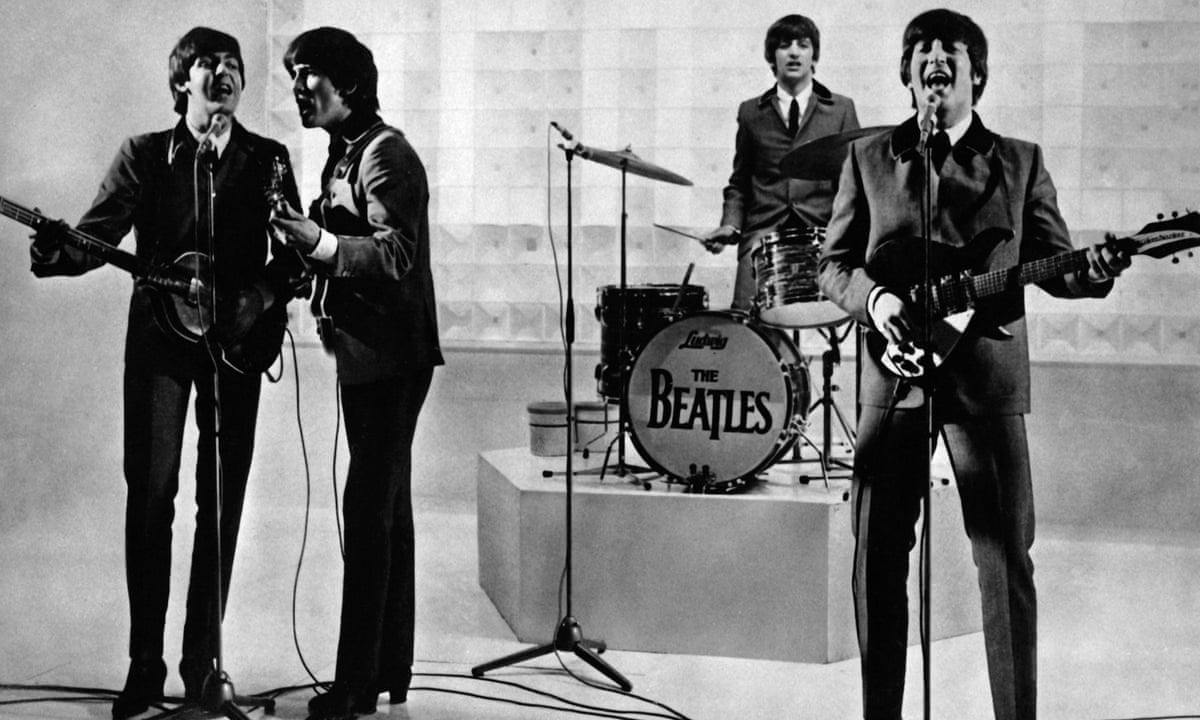

Reggae
What Influences Reggae Music
Modified: January 22, 2024
Discover the powerful impact and global influence of reggae music. Explore the origins, evolution, and cultural significance of this iconic genre.
(Many of the links in this article redirect to a specific reviewed product. Your purchase of these products through affiliate links helps to generate commission for AudioLover.com, at no extra cost. Learn more)
Table of Contents
Introduction:
Reggae music, with its infectious rhythm and socially conscious lyrics, has undeniably made a lasting impact on the music scene and popular culture. Originating in Jamaica in the late 1960s, reggae music has evolved to become not just a musical genre, but also a powerful tool for social change and self-expression.
At its core, reggae music is characterized by its distinctive drum beats, syncopated guitar riffs, and deep basslines. However, what sets reggae apart from other genres is its lyrical content, which often addresses social and political issues, promotes peace, love, and unity, and reflects the struggles and resilience of the Jamaican people.
The emergence of reggae music can be traced back to the fusion of various music styles, including ska, rocksteady, and mento, with influences from African and Caribbean rhythms. The legendary Bob Marley and The Wailers played a pivotal role in bringing reggae to the international stage, solidifying its status as a global phenomenon.
In this article, we will explore the historical roots of reggae music, its social and political influence, its cultural impact, its influence on other music genres, its global spread and popularity, as well as its economic impact. By delving into these aspects, we will gain a deeper understanding of how reggae music has shaped the world we live in today.
Historical roots of reggae music:
The roots of reggae music can be traced back to Jamaica in the late 1960s, emerging as a unique genre influenced by a blend of musical styles. One of the key predecessors of reggae is ska, a vibrant and upbeat genre that gained popularity in the 1960s. Ska, characterized by its offbeat guitar strumming and horn-driven melodies, provided the foundation for the development of reggae.
Another significant influence on reggae is rocksteady, a slower and more laid-back genre that emerged in the mid-1960s. Rocksteady built upon the rhythmic patterns of ska, incorporating elements of soul, rhythm and blues, and jazz. This fusion created a groove-oriented sound that laid the groundwork for the development of reggae.
Reggae’s unique sound can also be attributed to its African and Caribbean influences. The deep basslines and syncopated rhythms in reggae music reflect the African rhythmic patterns, while the use of traditional Caribbean instruments, such as the nyabinghi drums, adds a distinct flavor to the music.
One of the most influential figures in the history of reggae music is Bob Marley. Alongside his band, The Wailers, Marley brought reggae to the international stage, spreading its message of love, peace, and social justice. His iconic songs like “No Woman, No Cry” and “Redemption Song” showcased the power of reggae music to inspire and uplift audiences.
Reggae music also played a role in giving a voice to the marginalized communities in Jamaica. The lyrics often addressed the social and political issues faced by the Jamaican people, including poverty, inequality, and racial discrimination. It served as a platform for artists to express their frustrations, hopes, and aspirations.
Overall, the historical roots of reggae music can be traced back to the fusion of ska, rocksteady, African rhythms, and Caribbean influences. It was through the innovative sounds and powerful messages of artists like Bob Marley that reggae gained recognition and became a symbol of resistance and unity.
Social and political influence of reggae music:
Reggae music has always been deeply intertwined with social and political issues, using its powerful lyrics and infectious grooves to address and raise awareness about injustice and inequality. Throughout its history, reggae has served as a voice for the marginalized and the oppressed, spreading messages of hope, unity, and resistance.
One of the most prominent social and political issues tackled by reggae was the struggle against racial discrimination. The lyrics of reggae songs often highlighted the importance of racial harmony, urging people to embrace unity and equality. Songs like Bob Marley’s “War” and Peter Tosh’s “Equal Rights” became anthems for the civil rights movement, calling for an end to racial oppression.
In addition to racial discrimination, reggae music also addressed other societal issues such as poverty, economic inequality, and social injustice. Artists like Jimmy Cliff and Toots and the Maytals shed light on the plight of the poor and marginalized through songs like “The Harder They Come” and “Pressure Drop,” which resonated with audiences worldwide.
Moreover, reggae music played a crucial role in shaping the political landscape of Jamaica. During the 1970s, as Jamaica went through a turbulent period of political polarization, reggae music became a unifying force. Artists used their music as a platform to critique political corruption, advocate for change, and promote peace and social justice.
Reggae’s influence in politics was exemplified by Bob Marley’s involvement in the 1978 “One Love Peace Concert.” In a symbolic gesture, Marley brought together warring political leaders, Michael Manley and Edward Seaga, on stage, urging them to shake hands and promote peace in the midst of political violence.
Furthermore, reggae music played a significant role in promoting Rastafarianism, a religious and cultural movement that originated in Jamaica. Rastafarianism, closely associated with reggae music, promotes African-centric spirituality, advocating for social change and the empowerment of the African diaspora.
Overall, the social and political influence of reggae music cannot be overstated. It continues to be a powerful platform for artists to champion causes, raise awareness, and inspire change. Reggae’s ability to transcend boundaries and spark conversations has made it a catalyst for social movements worldwide.
Cultural impact of reggae music:
Reggae music has had a profound cultural impact, not only in Jamaica but also globally, influencing various aspects of art, fashion, and social movements. The unique sound and powerful messages of reggae have resonated with people from all walks of life, shaping cultural identities and fostering a sense of unity.
One of the notable cultural impacts of reggae music is its influence on fashion. The vibrant and colorful clothing associated with reggae culture, including the iconic red, yellow, and green colors of the Rastafarian flag, have become symbols of peace, love, and Jamaican pride. The distinct style of wearing dreadlocks and showcasing African-inspired accessories has also been embraced by enthusiasts of reggae music, further contributing to its cultural appeal.
In addition to fashion, reggae music has played a significant role in shaping visual arts. The album covers and music videos of reggae artists often incorporate vivid colors, bold patterns, and imagery that reflect the cultural roots and social messages within the music. These artistic representations serve as a visual expression of the reggae movement, capturing its essence and allowing it to be appreciated on a visual level as well.
Furthermore, reggae music has been a catalyst for social movements and the spread of cultural ideologies. The message of love, peace, and social justice promoted by reggae music has inspired individuals and communities to actively participate in advocacy efforts and strive for positive change. The reggae community has often come together to support various causes, such as environmental conservation, human rights, and social equality.
Reggae music has also influenced the development of other music genres, leading to the creation of new musical styles and fusions. Reggae’s influence can be heard in the genres of dub, dancehall, and reggaeton, among others. The distinct rhythm and melodic elements of reggae have been embraced and adapted by artists across the globe, showcasing the far-reaching impact of this genre.
Overall, the cultural impact of reggae music is vast and continues to be felt worldwide. From fashion to visual arts to social movements, reggae has left an indelible mark on popular culture, promoting a sense of unity, cultural appreciation, and a desire for positive social change.
Influence on other music genres:
Reggae music’s impact extends beyond its own genre, as it has influenced and contributed to the development of numerous other music styles. Its infectious rhythms, distinctive basslines, and socially conscious lyrics have inspired artists across different genres to incorporate elements of reggae into their own music, resulting in exciting and innovative musical fusions.
One of the genres heavily influenced by reggae is ska punk. Ska punk combines the energetic and fast-paced sound of ska with the rebellious attitude and raw energy of punk rock. Bands like The Clash and Sublime incorporated reggae’s offbeat rhythms and laid-back grooves, infusing them with their own punk sensibilities and creating a sound that resonated with audiences worldwide.
Dancehall is another genre that owes its existence to reggae. Emerging in Jamaica in the late 1970s, dancehall took reggae’s infectious rhythms and added a faster tempo and more modern production techniques. Dancehall music embraces a more explicit lyrical content and often focuses on partying, relationships, and social commentary, making it a vibrant and influential genre in its own right.
Reggae’s influence can also be heard in the development of dub music. Dub is a subgenre of reggae that emphasizes the manipulation of sound through mixing techniques, creating a mesmerizing and psychedelic auditory experience. Dub pioneers like King Tubby and Lee “Scratch” Perry experimented with echo, reverb, and other effects, pushing the boundaries of what reggae music could sound like.
Additionally, reggae has made its mark in the global music scene, influencing artists in various countries and cultures. In the Latin music realm, reggaeton emerged as a fusion of reggae, dancehall, and Latin American rhythms, bringing a fresh and Latin flavor to reggae-inspired music. Artists like Daddy Yankee, Don Omar, and J Balvin have popularized this genre internationally.
Reggae’s influence has also been felt in genres such as hip-hop, rap, and even pop music. Artists like Rihanna and Drake have incorporated reggae-inspired beats and melodies into their songs, adding a Caribbean flavor to their mainstream hits. This cross-pollination of genres has led to a more diverse and eclectic music landscape.
Overall, reggae music has had a profound influence on numerous music genres, pushing boundaries, and encouraging artists to experiment and explore new sonic territories. Its infectious rhythms and powerful messages continue to inspire musicians worldwide, ensuring that the spirit of reggae lives on in various forms throughout the global music scene.
Global spread and popularity of reggae music:
Reggae music has transcended its Jamaican roots, spreading its infectious rhythm and uplifting messages to every corner of the globe. Over the years, reggae has gained immense popularity, captivating audiences and inspiring musicians from diverse cultures and backgrounds.
Bob Marley and The Wailers played a pivotal role in propelling reggae to international prominence. Their breakthrough album, “Exodus,” topped charts worldwide, bringing reggae to the mainstream and introducing the genre to a global audience. Bob Marley’s iconic status as a music legend solidified reggae’s place on the international stage.
Reggae’s rise to global fame can also be attributed to the power of its messages. The lyrics of reggae songs, with their focus on social justice, equality, and spirituality, resonated with people globally, transcending language and cultural barriers. Reggae became a voice for the marginalized and a source of inspiration for those seeking change.
The popularity of reggae was further boosted by the emergence of reggae festivals and events held around the world. Festivals such as Reggae Sumfest in Jamaica, Rototom Sunsplash in Spain, and Reggae Sun Ska Festival in France became annual celebrations of reggae music, attracting thousands of attendees from different countries.
Additionally, reggae’s global popularity can be attributed to the influence it had on other music genres. As reggae-inspired sounds were incorporated into various musical styles, it opened doors for artists from different backgrounds to explore reggae-infused music, creating a hybrid of styles that appealed to diverse audiences.
The impact of reggae can be seen in the success of artists who have embraced its elements in their own music. Artists like Shaggy, Sean Paul, and Damian Marley achieved international fame and mainstream success, introducing reggae-influenced sounds to new audiences and expanding the genre’s reach.
The influence of reggae is not limited to music alone. Reggae’s themes of peace, love, and unity have permeated other art forms, including literature, visual arts, fashion, and even film. Reggae-inspired fashion trends, such as Rasta colors and dreadlocks, have become part of popular culture, further spreading the influence of reggae on a global scale.
Today, reggae music continues to thrive internationally, with emerging artists from all corners of the globe infusing their own cultural experiences and musical styles into the genre. Reggae’s powerful and uplifting energy ensures its enduring popularity and ongoing influence in the worldwide music scene.
Economic impact of reggae music:
Reggae music not only has a cultural and social impact, but it has also played a significant role in the economy, particularly in Jamaica. The global popularity of reggae has led to a wide range of economic opportunities and contributions to the music industry and related sectors.
In Jamaica, reggae tourism has become a vital source of revenue. Tourists from around the world visit Jamaica to experience the birthplace of reggae, explore the rich musical heritage, and attend reggae festivals and events. This influx of tourists stimulates the local economy, supporting businesses such as hotels, restaurants, tour operators, and souvenir shops.
Furthermore, reggae festivals and concerts, both in Jamaica and abroad, attract large crowds and generate considerable revenue. These events create job opportunities for event organizers, promoters, stage crew, security personnel, and local vendors, contributing to the overall economy.
Reggae artists and musicians also contribute to Jamaica’s economy through royalties, record sales, and concert ticket sales. The success of reggae artists in the global music market brings recognition and financial success, which in turn boosts the local industry’s revenue.
Reggae music has also had a significant influence on other business sectors, such as fashion and merchandising. Reggae-inspired clothing lines, accessories, and merchandise have a dedicated market, both domestically and internationally. The popularity of reggae-related fashion items provides opportunities for local designers and entrepreneurs, contributing to job creation and economic growth.
Additionally, the reggae music industry has fostered the growth of recording studios, sound engineers, and music producers. These professionals provide essential services to artists and contribute to the overall development of the music industry. The success of reggae music has also led to the establishment of music education programs and academies, nurturing young talent and providing employment opportunities in the music education sector.
Moreover, reggae music festivals held in various countries generate significant revenues and economic spin-offs for the local communities. These festivals attract tourists, boost tourism-related industries, and contribute to the overall economic growth of the region.
Overall, reggae music has a substantial economic impact, both in Jamaica and globally. It supports tourism, stimulates local economies, creates job opportunities, and drives growth in various sectors related to the music industry. The economic benefits of reggae music extend far beyond the music itself, showcasing the broad influence and importance of this vibrant genre.
Conclusion:
Reggae music has undoubtedly left an indelible mark on the music landscape, society, and culture at large. From its historical roots in Jamaica to its global spread and popularity, reggae has transcended boundaries and become a powerful voice for social change, cultural expression, and unity.
The historical roots of reggae music can be traced back to the fusion of ska, rocksteady, African rhythms, and Caribbean influences. The emergence of reggae provided a platform for artists to address social and political issues and became a voice for the marginalized and oppressed.
Reggae music’s social and political influence has had a lasting impact, advocating for racial equality, addressing poverty and inequality, and promoting peace and unity. Reggae artists like Bob Marley played a pivotal role in shaping the political landscape and inspiring social movements both in Jamaica and globally.
The cultural impact of reggae is evident in its influence on fashion, visual arts, and the development of other music genres. Reggae’s positive messages of love, peace, and social justice have resonated with people worldwide, fostering cultural appreciation and driving artistic expression.
Reggae’s influence on other music genres, such as ska punk, dancehall, and reggaeton, has led to exciting and innovative musical fusions. This cross-pollination of styles has contributed to the evolution and diversity of the global music scene.
Reggae music’s global spread and popularity can be attributed to the music’s universal appeal and the influence of iconic artists like Bob Marley. Reggae festivals, events, and the success of reggae-influenced artists have contributed to its global recognition and economic impact, supporting tourism, job creation, and other related industries.
In conclusion, reggae music stands as more than just a musical genre. It is a powerful force for change, unification, and cultural expression. Its influence on society, politics, fashion, and other music genres has shaped the world we live in today. Reggae continues to inspire, uplift, and resonate with audiences globally, ensuring its enduring legacy in the hearts and minds of people for generations to come.



